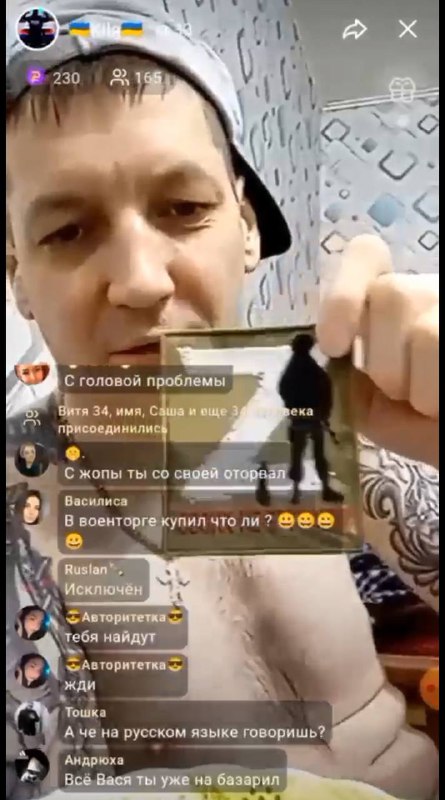group-telegram.com/iprupru/2111
Last Update:
За коммент в террористы?
Екатеринбург пополнился экстремистами
В августе в перечень террористов и экстремистов было добавлено три екатеринбуржца:
• Оморьян Артём Валерьевич, 21.08.1987
• Свеженцев Павел Андреевич, 12.07.1998
• Ельцова Елизавета Андреевна, 25.05.1998
Некоторые деструктивные паблики пишут, что за безвинные комментарии в ВК. Мне показалось, что опять врут про «нас-то за шо, мы просто гуляли», начала искать по ним информацию и оказалось, что не показалось.
Оморьян Артём 1987 года рождения, вышел в прямой эфир, где хвастался, что на стороне Украины срезал шевроны с наших погибших военных. На шевронах он не остановился, и рассказал аудитории, что отрезал российским солдатам уши. Такой вот «просто за коммент».
По остальным тоже попробую найти информацию. Не должно быть места для спекуляции наших противников. Народ должен знать и видеть своих врагов, понимать, что наши силовые структуры работают чётко и целенаправленно.
• Похищенный ФСБ поджигатель из Екатеринбурга внесён в список террористов и экстремистов

